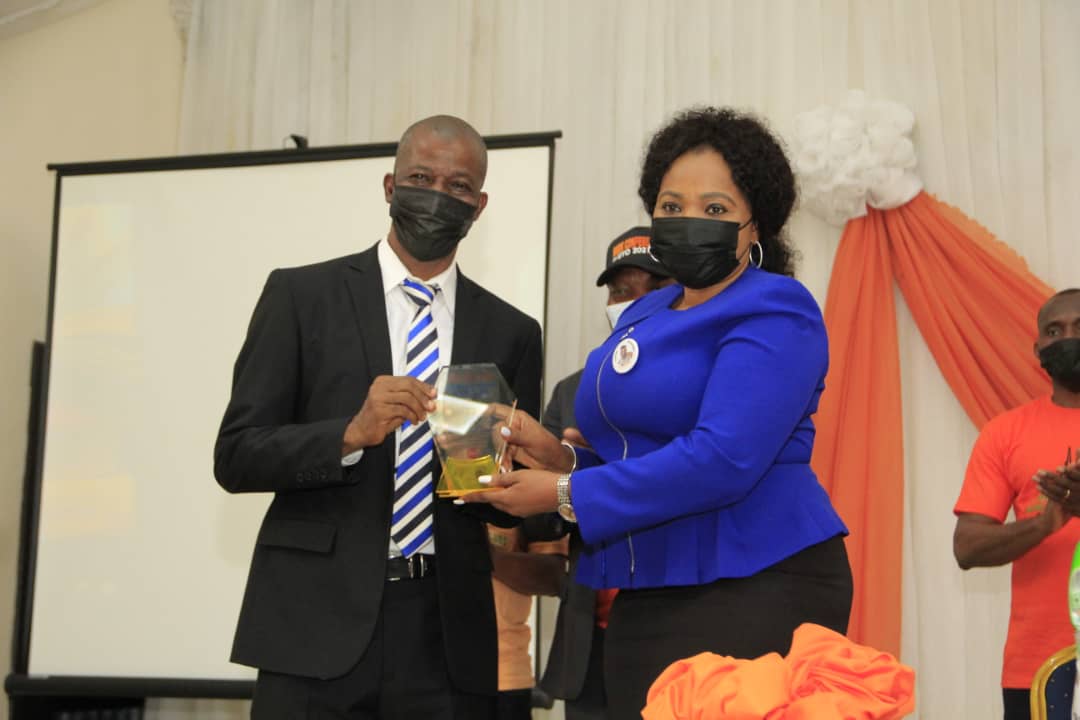Experts strategise on eliminating gender-based violence in African university campuses
By Godwin Okondo
THE Centre for Gender Security Studies and Youth Advancement, University of Abuja, FCT, Abuja, marked the UN’s 16 Days of Activism Against Sexual and Gender-based Violence in a webinar on Monday, November 29, 2021 on ways to curb violence against women and young people in general. It had as theme ‘Eliminating Violence against Women and Young People: The Campus Contexts,’ with panelists focusing on gender-based violence in African universities and its effects on victims.
Some of the panelists included the Executive Director, Change Managers International Network, Mrs. Felicia Onibon; Dr. Naomi Nkealah, from the University of Witwatersrand, Johannesburg, South Africa; Professor Aishatu Abdul-Ismail, from Bayero University, Kano; Executive Director Women Arise Development & Humanitarian Initiative (WADHI), Mrs. Esther Eghobamien-Mshelia, and Executive Director of Civil Society Legislative Advocacy Centre (CISLAC), Mr. Auwal Musa Rafsanjani. The webinar was moderated by Professor Hauwa Imam of the Faculty of Education, University of Abuja. Other participants present were theatre expert Prof. Mabel Evwierhoma and Rafatu Abdulhamid.

Onibon spoke about the habit of forcing women out of positions, as well as the rising cases of gender-based violence for the duration of the global covid-19 lockdown at the onset of the pandemic last year. According to her, “Some women are forced out of the political space, or asked to step down for a male to occupy the position. Sometimes, if it’s a family issue, the position is made available for male family members only. We want to encourage girls with leadership qualities to develop themselves in that line. “Most girls usually try as much as possible to avoid problems that come with leadership or political issues on campus, and as a result, they tend not to get involved in politics. There has to be mechanics set aside to address these problems. Students should have a place where they can lay complaints and something will be done about it. Partnership with civil societies is important. There should also be regular discussion on campuses concerning this topic. Policies should be activated and implemented in campuses.

Onibon also said the pandemic prompted a lot of gender-based violence especially within the family. According to her, “The pandemic had a lot of effect on gender based violence. During the lockdown, gender-based violence was on the increase and it also threw open negative happenings within families. Adolescence girls were violated at the time when people stayed together. Communities having issues with food sent girls out to seek food and they ended up getting violated in the process. Sexual activities increased and girls got pregnant and refused to return to school.” Speaking on sexual violence in South African campus context, Mrs. Nkealah said, “On the list of schools with the highest cases of rape, people wonder why Cape Town University ranks the highest. This has nothing to do with gender violence. There are lots of cases which come up daily in schools, that aren’t listed. I worked at the University of Limpopo for three years, and there were cases every month. Girls reported cases with nothing being done, and they see the person who had assaulted them everyday in school walking freely, with nothing being done; these girls end up committing suicide. “There is a massive underreporting of rape cases. There are male students and lecturers who are raping students and nobody is being identified. The students are victimized twice — reporting in court, and sharing the tale with the police and family members. The lawyers make the victims tell the story over and over again, and it feels like they are reliving the trauma. The problem we have is reporting rape cases, and intervention in rape cases and the rehabilitation offered. Rehabilitating the rapists is a good approach in dealing with the problem. Gender matters should be taught in schools, not just focusing on academics alone. Male students should be taught to use their masculinity to uplift society and build good relationships.”

Prof. Evwierhoma shared some slides for Mr. Auwal’s presentation, “The Oxford English dictionary defines violence as the exercise of physical force to inflict injury on, or cause damage to a person or property. The International Federation of Women Lawyers (FIDA) define violence against women as an act of gender-based violence that is likely to result in physical, sexual or psychological harm or suffering to women, including threats of such acts, coercion or arbitrary deprivation of liberty, whether occouring in public or private life.
“Violence could be physical, emotional, sexual, psychological, verbal, cultural, or financial. The challenges are the culture of silence, inadequate awareness, stigmatization of victims by the society, widespread culture of impunity, leaving cases uninvestigated, perpetrators being mostly high profile individuals with influence, distrust in society and the absence of a legal framework that criminalizes sextortion.
“Using social and conventional media to create awareness amongst citizens, especially within select tertiary institutions, parents, university management and other stakeholders on the danger of extortion, channel for reporting across project states and demand for action to be taken towards addressing the issue. To create trusted electronic (TIMBY APP) and physical (ALAC) complaint and reporting channels on sextortion, to pursue psychological support and redress. The App provides easy platform for anyone across the country to report issues of sextortion and also receive support. Confidentiality is also of high importance.”
Onibon expressed gratitude to all participants at the webinar, saying, “I’m happy that those managing the centre in the university have done so with passion. I want to thank you for your good work, as well as the effort you put into organizing this programme. I wish you well, and thank you.” Dr. Oluwatoyin Akanbi also commended the audience and participants for making out time to be part of the webninar, and commended the organizers. Dr. Felix also thanked the director, Evwierhoma, and her team for organizing the programme.



